PSM UMPSA conducted Industry Expert Forum Series 1: Semiconductor Manufacturing - Mathematics Perspective
Gambang, July 19, 2024 – The Centre for Mathematical Sciences has successfully organized an Industry Expert Forum titled 'Semiconductor Manufacturing - A Mathematical Perspective' Series 1, which is part of the initiative 'Addressing Skilled Workforce Demand in the Semiconductor Industry in Malaysia'. Two prominent panelists in the semiconductor industry are invited to share their vast experience, Dato' Dr Mohd Sofi Osman, an Independent Non Executive Chairman YBS International Bhd., Independent Non Executive Director Oppstar Bhd., Advisor Collaborative Research in Engineering, Science and Technology (CREST) and also a Chairman CREST Board Technical Review Committee and Mr Noorazidi Che Azib, Deputy Vice President for OTSP (Operation Technology and Strategic Programs at Inari Technology Sdn. Bhd.
According to the Malaysia Education Blueprint 2013–2025, Malaysia places great importance on education as a means of becoming a developed nation and meeting the challenges and demands of a Science, Technology, Engineering, and Mathematics (STEM)-driven economy. It is crucial to instill interest in STEM from an early age. The application of foundational knowledge can be enhanced by demonstrating real-world applications of STEM, which we believe can attract students to the field. With this in mind, we organized this forum to bridge the gap between foundational knowledge and its practical applications.
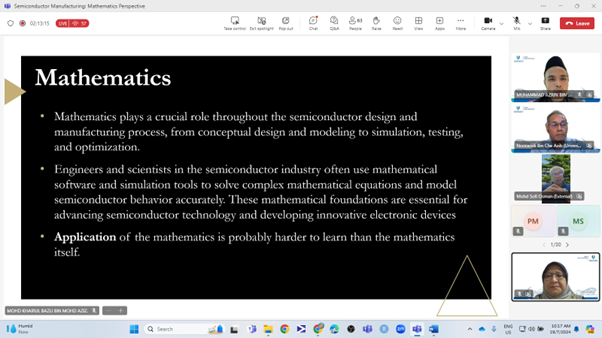
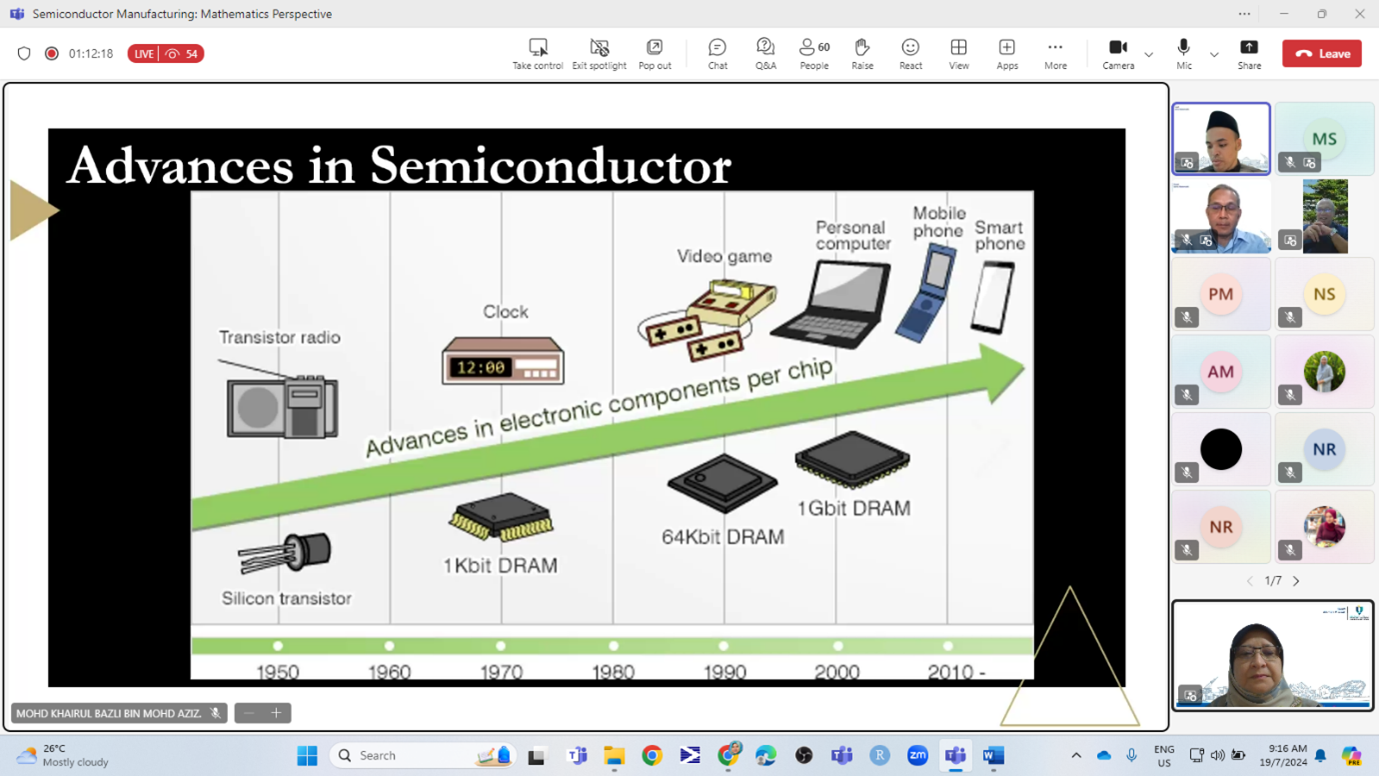
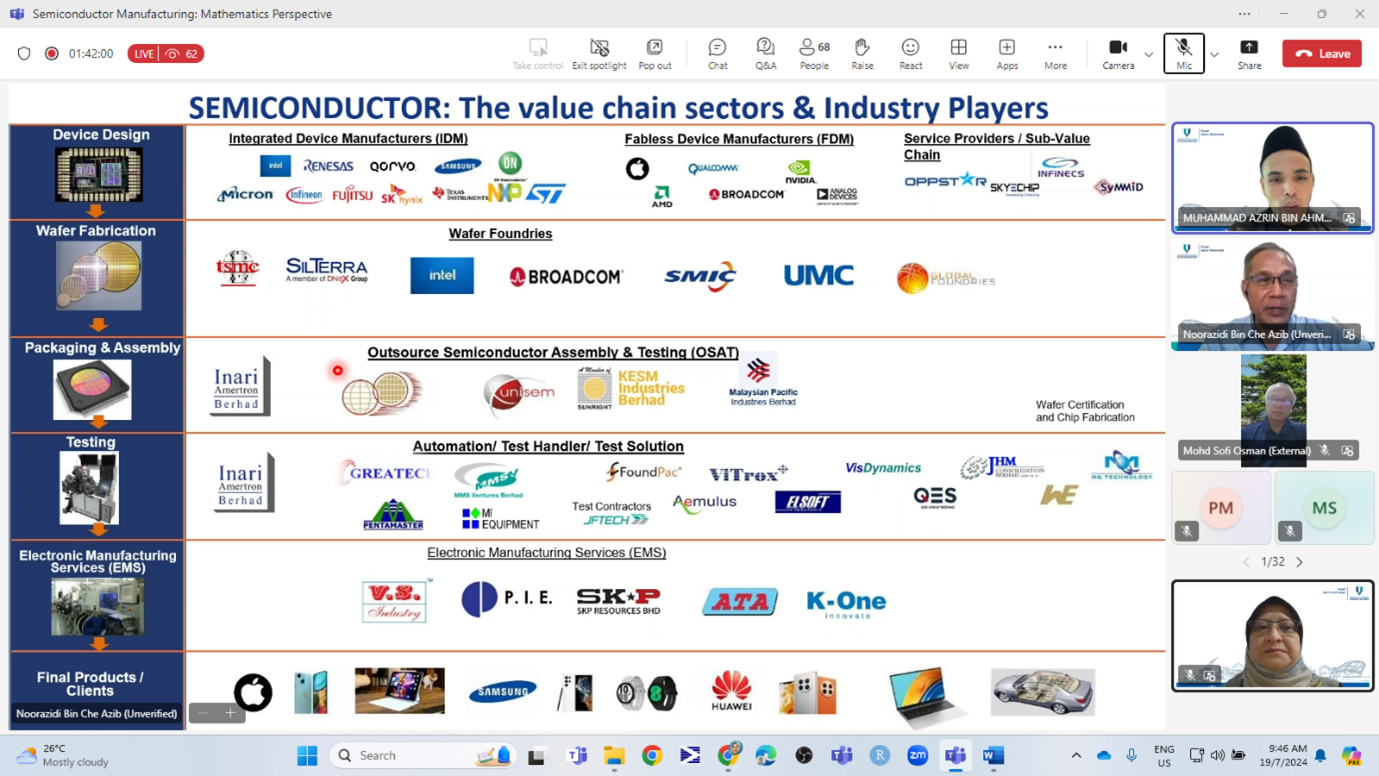
The semiconductor industry has long been a cornerstone of Malaysia's economy. The emergence of AI has further enhanced the semiconductor sector globally and in Malaysia. Consequently, the demand for a skilled workforce in this industry is expected to increase significantly in the coming years. This workforce must be equipped with integrated skills, such as those of Electrical and Electronic engineers who also possess programming expertise. According to the Malaysia National Semiconductor Strategy (NSS), a comprehensive three-phase plan backed by RM25 billion in fiscal support and targeted incentives, Malaysia aims to transform into a global powerhouse in the semiconductor industry over the next decade. It is expected that 60,000 new talents will be needed in this industry by 2030.
According to Dato’ Dr. Sofi, since 1972, Malaysia has benefited from being a key player in the semiconductor industry, driven by the automotive, data storage, and wireless industries. The semiconductor industry involves several stages, including integrated circuit (IC) design, wafer fabrication, and outsourced assembly and testing (OSAT). He also emphasized that mathematics plays a crucial role throughout the semiconductor design and manufacturing process, from conceptual design and modeling to simulation, testing, and optimization.
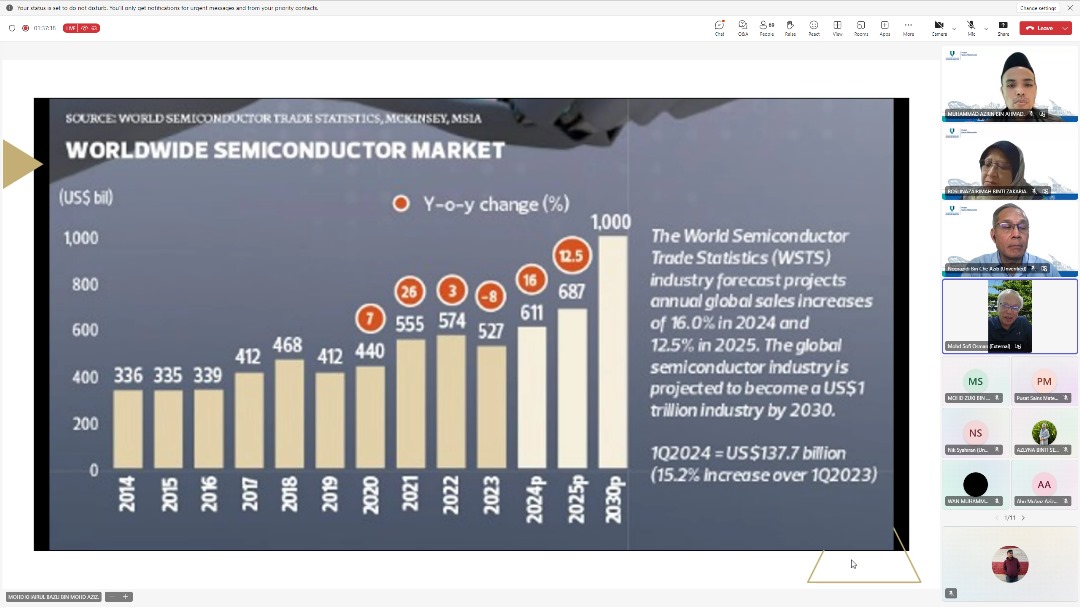
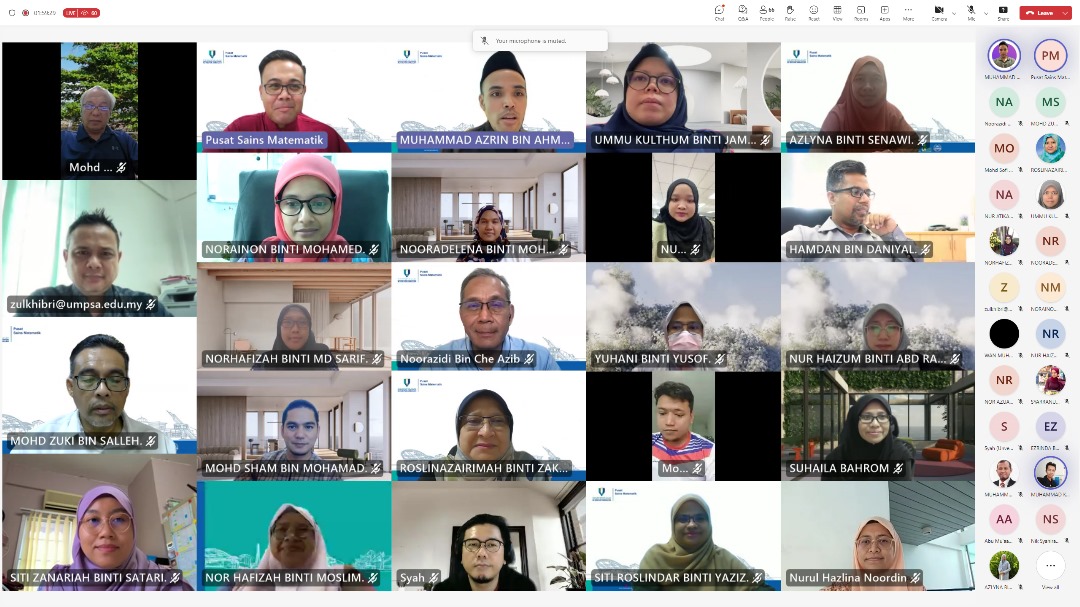
Mr. Noorazidi highlighted that Malaysia aims to enhance the semiconductor industry by shifting the value chain towards higher-end manufacturing, design, packaging, and equipment. With the advent of Industry 4.0 and AI technologies, the manufacturing process must be robust, cost-effective, and capable of delivering improved quality at a faster rate.
Author: Assoc Prof Dr Roslinazairimah Zakaria & Dr Norhafizah Moslim

